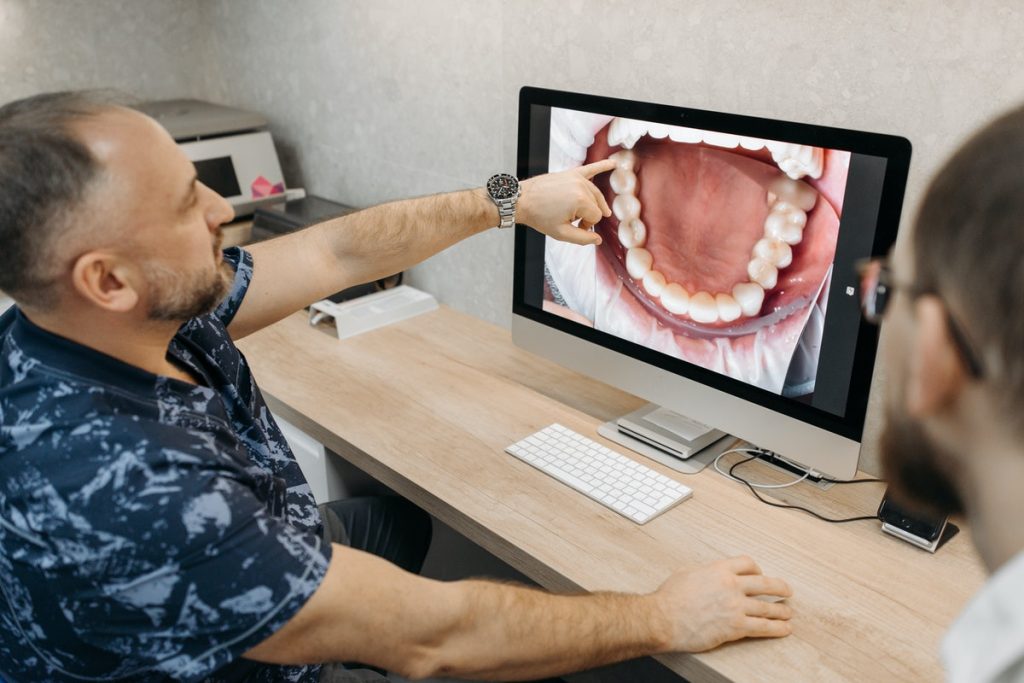When most people think of going to the dentist, they think of someone who cleans their teeth and maybe does a filling here or there. However, dentistry is a much more complex field than that. Different types of dentists specialize in different procedures. Here is a breakdown of the different kinds of dentists and what they do.
Dentist
The scope of dental practice includes diagnosing, treating, and preventing diseases and disorders of the teeth, gums, and supporting structures of the mouth. In addition to direct patient care, dentists have other responsibilities, such as managing their own businesses, supervising staff, and keeping accurate patient records.
Dental schools offer programs leading to the Doctor of Dental Surgery (DDS) or Doctor of Dental Medicine (DMD) degree. Both degrees are considered equivalent by most organizations governing the profession. Once in dental school, students spend four academic years learning essential knowledge and skills related to oral health care.
The first two years focus on didactic coursework emphasizing basic sciences such as anatomy, physiology, biochemistry, and microbiology. The last two years focus on clinical training with rotations through various specialty areas such as oral surgery, endodontics (root canals), periodontics (gum disease), and orthodontics (braces).
Dental students also gain experience in community-based settings such as public health clinics or nursing homes. Upon graduation from dental school, they must pass written and practical exams before being licensed to practice as dentists.

Orthodontist
An orthodontist is a specialist who has undergone additional training after completing dental school to diagnose and treat dental problems about the alignment of the teeth and jaws. Because of their extra training, only about 6% of dentists are considered true orthodontic specialists.
An orthodontist will usually start by taking x-rays, photographs, and dental impressions to create a detailed model of your mouth, which will be used to make a customized treatment plan.
With braces being the primary tool orthodontists use to correct irregularities in the teeth and jaws, what are some of the many types? One of the most common types is metal braces. There are also clear or ceramic braces made from translucent (clear) ceramic material.
Aside from that, some orthodontists use lingual braces, which are similar to metal braces but differ in that they are placed on the backside (tongue side) of teeth, making them virtually invisible when talking or smiling.
Endodontist
Endodontists are dentistry’s superheroes. They save teeth that might otherwise be lost to decay or infection. They specialize in treating the inside of the tooth – the part of the tooth that houses the nerve and blood vessels. This tooth area is called the root canal, which can become damaged due to decay, infection, or trauma. When this happens, endodontists step in to clean out the damaged tissue and save the tooth.
Root canal treatment is just one of the many procedures that endodontists are trained to perform. Endodontists also help patients who have suffered injuries to their teeth.
If you have chipped or cracked your tooth, an endodontist can often save it by performing a pulpectomy procedure. In this procedure, the endodontist removes any damaged tissue from within the tooth and fills it with a biocompatible material. This helps to stabilize the tooth and prevent further damage.
Many people choose to see an endodontist for several reasons. First and foremost, endodontists are experts in their field. They have undergone specialized training to provide their patients with the best care. In addition, endodontists often have access to cutting-edge technology that can make procedures like root canals less painful and more efficient than ever before.
Periodontist
A periodontist is a dental specialist who focuses on the health of your gums. Dentists must complete three additional years of training beyond dental school to become a periodontist.
If you have any concerns about your gum health, you must see a periodontist for an evaluation. As experts in gum health, periodontists are uniquely qualified to diagnose and treat gum disease. They can also perform cosmetic procedures to improve the appearance of your gums.
Periodontists also place dental implants. Dental implants are metal posts or frames surgically placed in your jawbone to support artificial teeth. If you’re interested in getting dental implants, seeing a periodontist for an evaluation is essential to ensure that you’re a good candidate for the procedure.
There you have it. The next time you need to see a dentist, you will know exactly which one to go to depending on your needs. Remember, even if you don’t have a dental issue, dentists, endodontists, periodontists, and orthodontists are medical professionals who can help you maintain good oral health and prevent problems down the road. So don’t hesitate to make an appointment with yours today!


